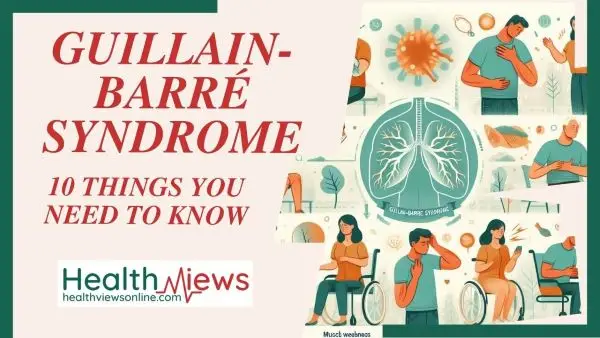Guillain-Barré Syndrome (GBS) is a rare neurological disorder where the body’s immune system mistakenly attacks the peripheral nerves, leading to muscle weakness and, in severe cases, paralysis. Recently, Maharashtra has witnessed a notable increase in GBS cases, particularly in Pune, raising public health concerns.
Understanding GBS is crucial for early detection and effective management. Here are ten essential facts about Guillain-Barré Syndrome, with insights from medical professionals:
1. What is Guillain-Barré Syndrome?
GBS is an autoimmune disorder where the immune system attacks the peripheral nerves, leading to symptoms like tingling, weakness, and potential paralysis. Dr. Anjali Deshmukh, a neurologist in Pune, explains, “The exact cause of GBS remains unknown, but it often follows infections such as respiratory or gastrointestinal illnesses.” (Source: mayoclinic.org)
2. Recent Surge in Maharashtra
Maharashtra has reported a significant rise in GBS cases, with Pune being the most affected. As of January 2025, 101 cases have been documented, with 16 patients requiring ventilator support. Health officials are investigating potential links to contaminated water sources.
Also Read: HMPV Virus Threat Is Another Pandemic Coming in China?
3. Common Symptoms
Early symptoms include tingling and weakness in the extremities, which can progress to paralysis. Dr. Rajesh Kumar, a neurologist, notes,
“Patients often experience rapid onset of muscle weakness, which can escalate to respiratory difficulties if not promptly addressed.”
4. Potential Causes
While the exact cause is unknown, GBS often follows infections. Dr. Meera Patil, an infectious disease specialist, states, “Infections like Campylobacter jejuni, influenza, and even COVID-19 have been associated with the onset of GBS.”
5. Diagnosis Process
Diagnosing GBS involves clinical evaluation, nerve conduction studies, and lumbar puncture. “Early diagnosis is vital,” emphasizes Dr. Suresh Naik, a neurologist. “Prompt medical attention can significantly influence the recovery trajectory.”
6. Treatment Options
There is no cure for GBS, but treatments like plasma exchange and intravenous immunoglobulin therapy can reduce severity and promote recovery. Dr. Priya Sharma, a neurologist, advises, “These treatments are most effective when administered early in the disease course.”
7. Recovery Outlook
Recovery varies; some patients regain full function, while others may experience lingering weakness. “With appropriate treatment and rehabilitation, many patients recover well,” says Dr. Anjali Deshmukh. “However, the recovery process can be prolonged, requiring patience and comprehensive care.” Source: health.economictimes.indiatimes.com
8. Importance of Early Detection
Recognizing initial symptoms is crucial. Dr. Rajesh Kumar emphasizes, “Early detection and intervention can prevent complications and improve outcomes.” Individuals experiencing rapid muscle weakness should seek immediate medical attention.
9. Preventive Measures
While preventing GBS entirely is challenging due to its unclear origins, maintaining good hygiene and promptly treating infections can reduce risk. Dr. Meera Patil recommends,
“Regular handwashing and seeking medical care for infections are practical steps to minimize potential triggers.”
10. Current Research and Awareness
Ongoing research aims to better understand GBS and develop more effective treatments. Public health initiatives in Maharashtra are focused on raising awareness and early detection. Dr. Suresh Naik concludes, “Community awareness and timely medical intervention are key to managing GBS effectively.”
In summary, Guillain-Barré Syndrome is a serious condition that requires prompt medical attention. Awareness of its symptoms, early diagnosis, and appropriate treatment are essential for improving patient outcomes, especially in light of the recent increase in cases in Maharashtra.





